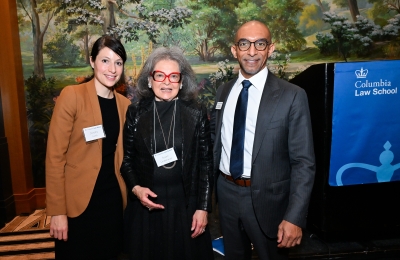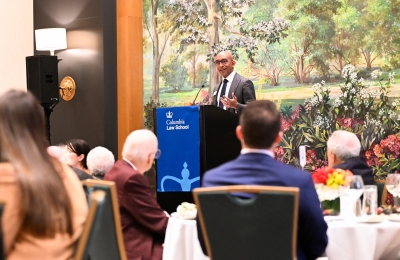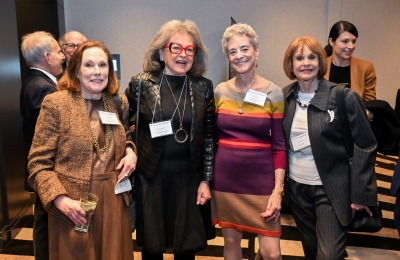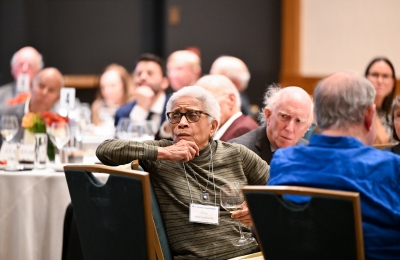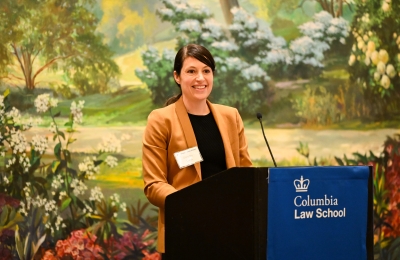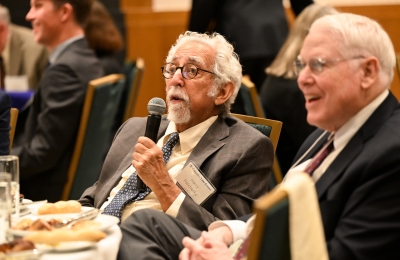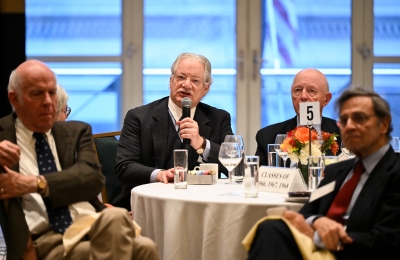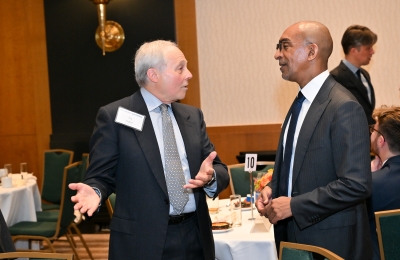The Stone Circle Luncheon 2024: 50 Years of Fellowship for 50-Year Alumni
Achieving a “special milestone,” Columbia Law School alumni who graduated 50 or more years ago have been gathering for half a century.
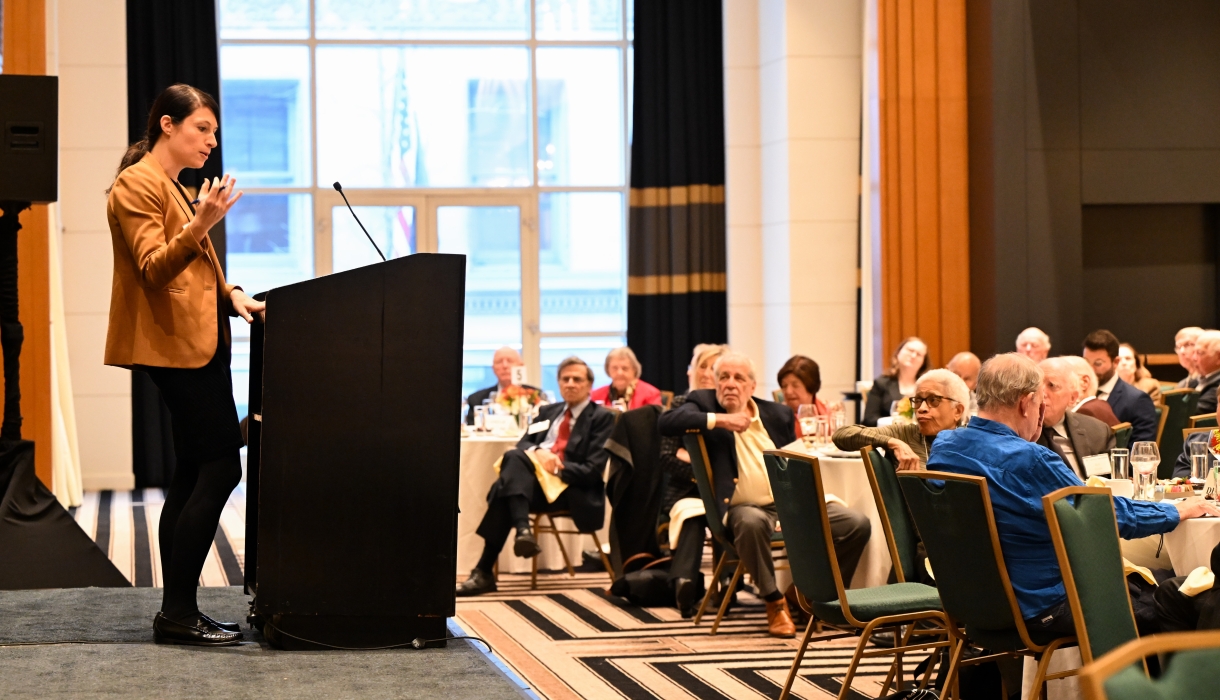
Pictured: Professor Dorothy S. Lund speaks to members of the Stone Circle.
When the Stone Circle luncheon, which welcomes Columbia Law alumni who graduated 50 or more years ago, began its formal existence as an annual event in 1974, members of that year’s class were freshly minted lawyers just entering the legal ranks. So this year’s luncheon at the Sofitel Grand Ballroom in New York on November 18 was a double celebration: The Stone Circle gathered for the 50th year, and it welcomed the Class of 1974 as members.
The confluence is a “special milestone,” said Daniel Abebe, Dean and Lucy G. Moses Professor of Law. “This 50-year theme represents much more than time. It speaks to dedication to growth and the community. It’s a testament to the sustained relationship between our alumni and Columbia Law that has evolved through every phase of life.”
The Dean then led the 70 alumni attendees in a toast to the Class of 1974 and to “the history that binds us and to the enduring relationships that make Columbia Law a family across generations.”
Keynote speaker Dorothy S. Lund, Columbia 1982 Alumna Professor of Law, spoke on “Purpose and Nonprofit Enterprise.” Drawing on examples of benefit corporations (such as clothing maker Patagonia) and businesses owned by enterprise foundations (such as Danish pharmaceutical company Novo Nordisk), she posed a question that “goes to the heart of corporate law theory”: “Why [do] we see successful businesses choosing the nonprofit structure and thriving under it despite the governance challenges that accompany an entity that doesn’t have shareholders?” Without enforcement of management efficiency driven by shareholders, “I was expecting to see these companies collapsing into dust,” Lund said. “Why was I not seeing this?”
She theorizes that a corporation’s business purpose—such as Patagonia’s mission to combat the climate crisis—as well as “employee commitment to the [company’s] mission” could replace some of the governance functions and management guidance in business decisions that shareholder oversight performs in traditional publicly traded corporations. For example, Lund cited the resignation of software company Mozilla’s CEO after employees argued that his opposition to same-sex marriage “rendered his leadership incompatible with the mission of promoting an open and inclusive internet.”
“This all suggests that … shareholder control might not be the only [way] or best way for businesses to achieve managerial accountability,” she said.
At the end of her talk, Lund fielded questions from the Stone Circle alumni—her goal, she said, in sharing a not-yet-published paper with the group. “I thought this would be a perfect thing to discuss with the members in the room here: Many of you have had long, illustrious careers working in the nonprofit space and advising nonprofits,” she said. “It’s so wonderful to be part of this group and this event and to be sharing a brand-new project with you all.”
The Stone Circle Luncheon began as an informal gathering of alumni who attended Columbia Law School during the deanship of Harlan Fiske Stone 1898, from 1910 to 1923. Stone later became chief justice of the United States. The luncheon became an annual event in 1974.
